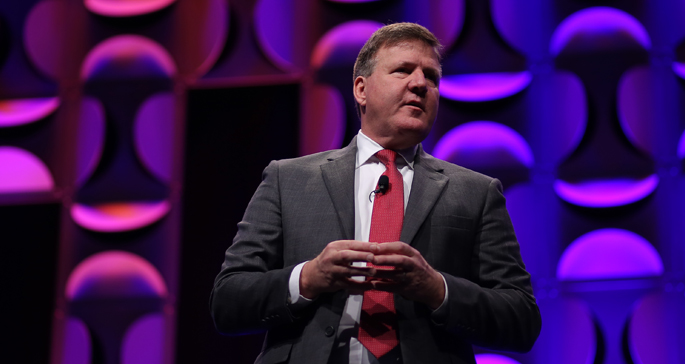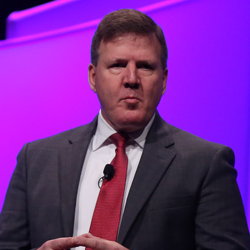Ever feel inadequate at work? Like you aren’t up to the task of managing what’s happening today, much less what’s coming next?
Here’s a newsflash: You aren’t the only one to feel that way, says Dr. Fred Johnson, chief executive officer and founder of InitiativeOne. He’s worked with Fortune 500 companies, professional and collegiate sports teams, as well as school districts and universities across the country to help employees cultivate the power of good leadership.
“This is the number one thing by far I hear from leaders [including National Football League] head coaches and CEOs,” Leonard told attendees at ACRP 2019 in Nashville this morning (April 14). “Gang, every single one of us may look like an adult, but inside we are all little kids craving to be accepted, loved and appreciated.”
When leaders let down their guard, Johnson said, they often admit to feeling like they “aren’t enough.”
It’s a big problem and challenge because a damaged leader can’t effectively lead and inspire those around them, Johnson said. “You cannot give out what you don’t have,” he noted. Being a good leader requires a “relentless” effort to work on yourself and “fall in love with yourself warts and all.”

The good news is your team doesn’t expect you to be a perfect leader. In fact, if you’re the kind of leader who puts on a front that you’ve always got it together, you’ll never make a mistake, and you’ll never apologize, “you are not leading them, I guarantee it,” Johnson said.
Enlightened leaders at all levels of an organization have the opportunity to build a better kind of future. Many of your colleagues are “desperate” to succeed at work, Johnson said. They’re looking to you for inspiration. “They want change and development and a mentor, and they need you and your encouragement and feedback,” Johnson explained.
It’s an exciting prospect: “They may be only one constructive, positive, caring conversation away from a tipping point. That’s the kind of impact you can have on people’s lives.”
Applauding the “sacred” work done by those in the audience, Johnson challenged attendees to do even better. “You didn’t decide to play in the minor leagues,” he said. “You are using your gifts to make an impact in your field to help shape the cures and clinical trials being developed to make a difference in people’s lives long after you are gone,” he added.
Author: Michael Causey



